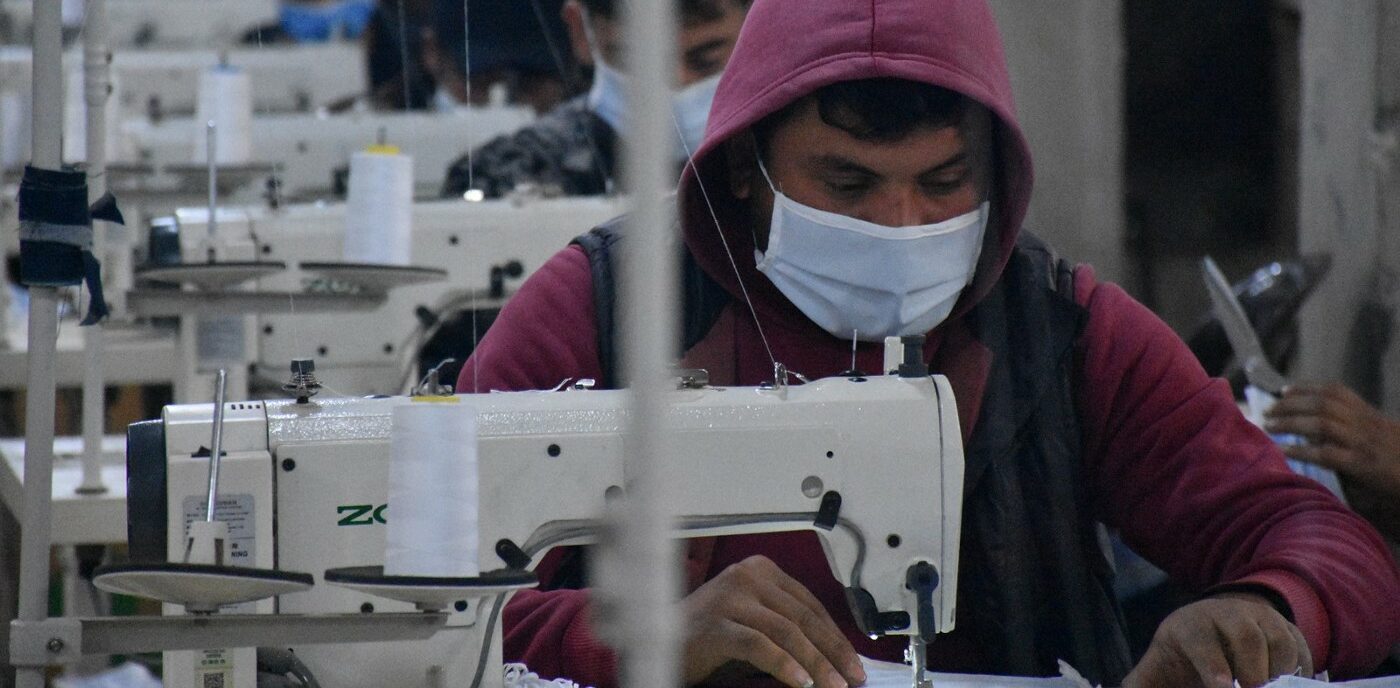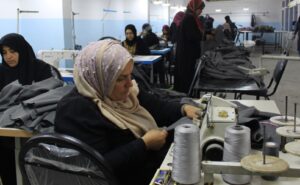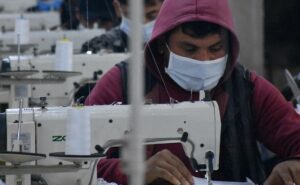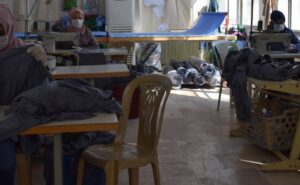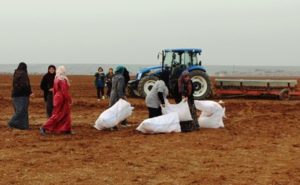North and East Syria faces serious challenges in the fight against COVID-19. 600,000 IDPs and refugees live in camps across the region, their situation already precarious without a pandemic. Ongoing attacks by Turkish forces, Turkey-backed militias, and ISIS complicate the security situation and threaten essential civilian infrastructure like water lines.
According to the Rojava Information Center, the region has only one ventilator per 100,000 people, and can handle a maximum of 460 cases before its health system is overrun. While the WHO has supplied test kits to the Syrian government, none of the kits have been given to authorities in the northeast. PCR test machines have recently been supplied by the Kurdistan Regional Government — the region’s only existing PCR machines were destroyed in Turkish attacks on the main hospital in Sere Kaniye.
Strict preventative measures have been in place for weeks to stave off the threat of an outbreak. A lockdown went into force on March 23rd, and has generally been adhered to — and enforced. Border crossings are closed, with exemptions for some humanitarian aid. All individuals entering the region, including travellers from government-held Syria flying into the Qamishlo airport, have been subject to quarantine.
In combating these challenges with little international support, the region has turned to the political and economic structures that have allowed it to survive under harsh conditions throughout nearly a decade of civil war in Syria. Local media has reported in great detail on the ways in which these institutions are being repurposed to meet new needs and adapt to unprecedented challenges.
Co-operatives
Co-operatives form a significant part of North and East Syria’s economy. Material conditions in the region — which for most of its existence has been surrounded by hostile actors — required economic self-sufficiency. The ideological principles upon which the revolution is based also rejected the neoliberal economic order and the poverty and dependency on foreign aid and outside support that it has created in the Middle East.
Several textile co-operatives, including women’s co-operatives run by Kongra Star, have transitioned from producing everything from school uniforms to traditional clothing to making protective masks. Among these are the Amargî Workshop in Kobane, one of the longest-running women’s co-operatives in the region. Established in 2011, the co-operative employed 17 women in 2017. 10 workers in the co-operative have produced about 100 masks in the past two days.
“After the spread of coronavirus around the world, we began to make masks as part of a campaign to stop this pandemic,” Rewsen Hacim, a member of Kongra Star in Euphrates region, told ANHA. Hacim noted that masks were being made for members of the Autonomous Administration as well as for everyday citizens — to whom they would be distributed for free through neighborhood communes.
In Manbij, the Şehîd Sakîne Eseliye Workshop, another women’s co-operative, is making masks for members of local security forces — who must be outside despite the pandemic.
In Hasakeh, the Qessipyan Workshop has produced over 20,000 masks in recent weeks — about half of which have also been distributed to security forces responsible for maintaining the lockdown, and about 5,000 of which have been given to pharmacies.
Preparations are ongoing to increase production. New workshops have already been established, with Heyva Sor overseeing the production of thousands of masks to be distributed to civilians at a new workshop in Shahba region.

Another textile co-operative, the Lavin Workshop in Hasakeh, is now producing medical scrubs to provide to healthcare workers free of charge. Their goal is to produce 500 per day, though a worker noted that they worried about the availability of fabric.

Agricultural co-operatives have also remained active. These provide necessary food, lessening reliance on imports. Northern Syria was the country’s breadbasket prior to the civil war — though centralised governance meant that its people were not able to benefit equitably. The creation of agricultural co-operatives has democratised some of these resources. In total, co-operatives make up an estimated 7% of the economy of Jazira region — with women’s co-operatives contributing to nearly half of that figure.

These reports suggest that the existence of a co-operative system with institutional support has helped with pandemic preparation in two main ways. First, the presence of existing facilities, materials, and workers has clearly enabled North and East Syria to produce more goods faster than equivalent goods could be imported — and to do so without the need for dangerous international travel.
Second, co-operatives are more attuned to the needs of the communities their members live in, and thus more likely to make decisions based on need than profit. Their relationships with other Autonomous Administration institutions also makes society-wide coordination possible — in one example, a textile co-operative run by the Women’s Office of the Peoples’ Municipality in Derik had made about 500 masks in the first week of April alone.
Communes
The neighborhood commune is the smallest level of political organisation in North and East Syria. The members of each commune are all individuals above the age of sixteen in a given community, with a male and female co-chair serving as leaders. Each commune is divided into several committees with different responsibilities.
Recently, the communes have become essential for ensuring that the lockdown can be maintained without undue stress on everyday people. One ANHA report described how the process of food distribution implemented by the Autonomous Administration relies on the local knowledge and small scale of these structures. Communes are responsible for registering lists of names of those who need food assistance — primarily the poor and unemployed. The Social Affairs Commission then supplies food items, which are distributed by the communes.

This process is underway even in areas that lack basic resources without the threat of a pandemic — such as Shehba region, where tens of thousands of IDPs from Efrîn have lived since 2018. Shehba is regularly bombed by Turkey and its affiliated militias. Many of the IDPs who fled there took shelter in abandoned buildings that were damaged in the fight against ISIS, with several families often sheltering together in the same destroyed structures. Access to water and electricity is often intermittent, and has recently been threatened by Turkish attacks.
Despite this, the region’s communes are working with the local Social Affairs Commission to distribute food aid. In Fafin district, for example, food was distributed to about 2,000 families, with commune members going from family to family to distribute aid in order to prevent large groups from congregating. About half of these families are displaced Efrîn residents.
In Sheikh Maqsoud and Ashrafiyeh, SDF-held neighborhoods in Aleppo, local communes have followed the same system. Recently, the Co-Chair of the General Council of Sheikh Maqsoud stated that 5,000 packages of soap and cleaning supplies had been distributed to families whose primary breadwinners were out of work due to the lockdown.

Like co-operatives, communes allow relief efforts to be both centrally coordinated and based on community needs. Commune members do not need to travel beyond their neighbourhoods to distribute aid, lessening the number of people travelling from city to city. Reliable, organised distribution also lessens the likelihood that large groups of people will gather in shops out of fear that they may not get the items they need.
These institutions are not working alone. International support to provide medical aid and technology that the region cannot currently produce by itself is necessary. Private charity is also beneficial, with local media reporting that professional associations, civil society organisations, and well-off individuals have all contributed to relief efforts. Even so, democratic confederalist structures with strong popular support have undoubtedly played a key role in helping North and East Syria implement preventative measures.
